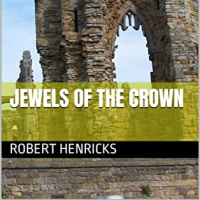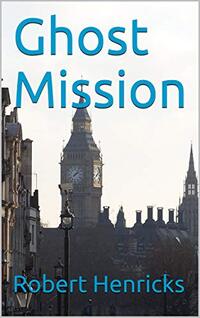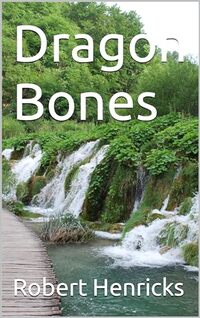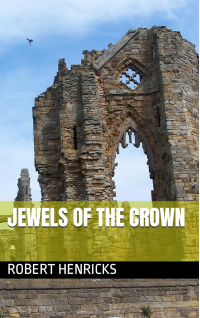Robert Alan Henricks Interview Published on: 17, Jan 2024
 Can you tell us about your journey from being a history enthusiast to becoming a novelist? What inspired you to make that transition?
Can you tell us about your journey from being a history enthusiast to becoming a novelist? What inspired you to make that transition?
Blame my father. Dad was a history nut, particularly when it came to the Civil War. Unquestionably I caught the history bug from him. As far as the fiction part, I believe that started in my childhood when I discovered fiction writers such as Len Deighton, Raymond Chandler, Adam Hall and Ian Fleming among others. It was just a matter of time before the two disciplines became intertwined and soon I began putting pen to paper and creating my own fiction.
You mentioned enjoying mornings with the Los Angeles Times and a pot of French roast. How does your daily routine or habits impact your writing process?I am a creature of habit. After finishing the daily crossword and downing two cups of java, I go to work. Ten pages of material is a good day.
How has your background in U.S. and European history influenced your writing style and the themes you explore in your novels?I suppose I am bias as far as U.S. and European history goes as that was my field in earning my degree. Themes are something I am always on the lookout for. I seek out historical events that have not been written about to any significant degree and if I see a story I go for it.
You've focused on historical themes in your recent novels. Could you share what draws you to these particular periods in history and how you choose the events to base your novels on?I look for the unusual or the underexploited. Example, my book “Jewels of the Crown” looks into the lost crown jewels of King John. As the jewels were never recovered I saw an opportunity to create a solution to an unsolved mystery. What if the jewels were never lost at all but were in fact taken. Other books such as “Ghost Mission” and “Dragon Bones” begin similarly with a moment in time expanded into a fiction adventure.
What were the key literary inspirations or works that motivated you to start writing historical fiction, "The Iliad"?The “Iliad” and the “Odyssey” are of course marvelous exampled of fictional narrative. As is “Killer Angels”. But more significant for me is Michener’s “Centennial” as he takes a subject matter, a fictional territory which he then follows through the decades with a story that is totally made up. I love that kind of creativity.
Can you discuss some of your favorite historical fiction works, such as "A Soldier of the Great War" and "Killer Angels," and how they have impacted your writing?“A Soldier of the Great War” is the brainchild of Mark Helprin, a wonderful storyteller. His books are a treat to read which have proven inspirational when it comes to stimulating the creative juices.
You also have an interest in the spy genre. What led you to explore this genre, and how have authors like Ian Fleming and Tom Clancy influenced your approach to espionage fiction?My introduction to espionage fiction came in the 1960’s at my first viewing of Dr. No. Intrigued, I began reading Ian Fleming’s books, which my mother considered to be dirty novels, and once I had digested them I was hooked on the genre. I suppose my biggest influence regarding espionage fiction was Adam Hall (Elleston Trevor), author of the Quiller spy series. His lead character, Agent Quiller, is just the kind of smart-alecky non-conformist I admire in the main role. I think that my two recurring characters, Philip Deckert and Harry Wells fall into that mold.
Could you tell us more about your espionage series featuring an agent of the Treasury Department and artifacts of wealth and historical value? What inspired you to delve into this genre?My Treasury Dept. agent, Philip Deckert, is actually a member of the Secret Service assigned to cases involving stolen artwork or contraband. Since 9/11 the Secret Service has been reassigned to Homeland Security, so Agent Deckert is no longer affiliated with the Treasury. Agent Deckert is British by birth who relocated to the States to avoid British tax laws. The idea for this character came from an interview of a British born member of the Secret Service detail assigned to President Reaga,
How do you balance historical accuracy with storytelling in your novels? What research methods do you employ to ensure authenticity in your historical settings?Research. My historical novels usually take a year to complete, half of which time is allocated to the writing of the book and the rest to doing my homework. As an old school guy I tend to lean toward books as my go-to for names, dates and places. I also my frequent use of an atlas or a good old fashioned map when determining the locations of cities, towns and roadways. And yes, I do use Google which is particularly helpful when I need to see a picture of someplace I’ve never been so that it can be accurately described.
What is your creative process when developing the characters and plot for your novels? How do you breathe life into historical figures or create fictional characters within historical contexts?As far as a creative process, I find it beneficial to take my time once I’ve got an idea and let it fester in my mind for a few days or weeks until characters and events form a picture. Then I jot down what I’ve imagined and continue from there to construct a story outline. Once I have a story in mind I let the story itself take the lead and guide me through the process. I find that the more story I put on paper the more it comes to life and steers me in a direction I may not have originally considered.
Many authors have a favorite character they've created. Do you have a character from one of your novels that you hold especially dear or find particularly intriguing? If so, could you share more about them?I have to say that Harry wells is my main guy. Harry is a chef by trade who works from time to time for the FBI who in turn values his expertise learned from his special forces experience while in the army and his subsequent years with the DIA. Wells is adept with weapons and hand-to-hand confrontations as well as being a Cordon Bleu master in the kitchen. He is also a wise-cracker who had a somewhat tempestuous relationship with his FBI partner, Ronnie Malcolm.
How do you stay updated on historical events and the latest developments in history that may influence your writing?I read a lot. A lot. Whether it be historical journals, information form historical organizations or some new discovery that makes it into the newspaper.
You mentioned enjoying Humphrey Bogart and 1940s films. Have these cinematic influences ever found their way into your writing or inspired certain elements in your novels?I love all things Bogey and, as he plays characters who are non-conformists and who buck authority, his films have always been a draw for me. None of my characters are directly based on any of Bogart’s films, but I have incorporated his I’ll-do-it-my-way attitude.
Can you provide any insights into your future writing projects or what readers can expect from you next?As for the future, I have just released a new novel titled “Dragon Bones” about a Japanese officer during the Pacific war who is trusted by the family of the emperor to appropriate valuable artifacts for the royal coffers. I will be releasing my latest novel “Stardust” next year which tells the tale of the Stardust aircraft which vanished n the Andes in 1947. Beyond that I am embarking on a new series called Oak Knowers, the story of a modern group of people who are transported through time to the age of the Druids in 4th century Scotland.
What do you think of AllAuthor? Has this website been helpful to you?I am very pleased with the results I’ve gotten from All Author. Each book I have listed on the site has garnered sales. I’ve tried other promotional sites but most of them prove to be disappointing. I will continue to list my novels on All Author in the future.
Share Robert Alan Henricks's interview
Robert Henricks, a prolific author since 1984, focuses on historical themes in his novels, drawing inspiration from a deep-rooted passion for history cultivated by his father. He expanded his interests into spy fiction, inspired by works ranging from Ian Fleming's James Bond to Tom Clancy's novels. He enjoys French roast coffee, classic films, and Sunday football, embodying a rich literary and historical tapestry.





